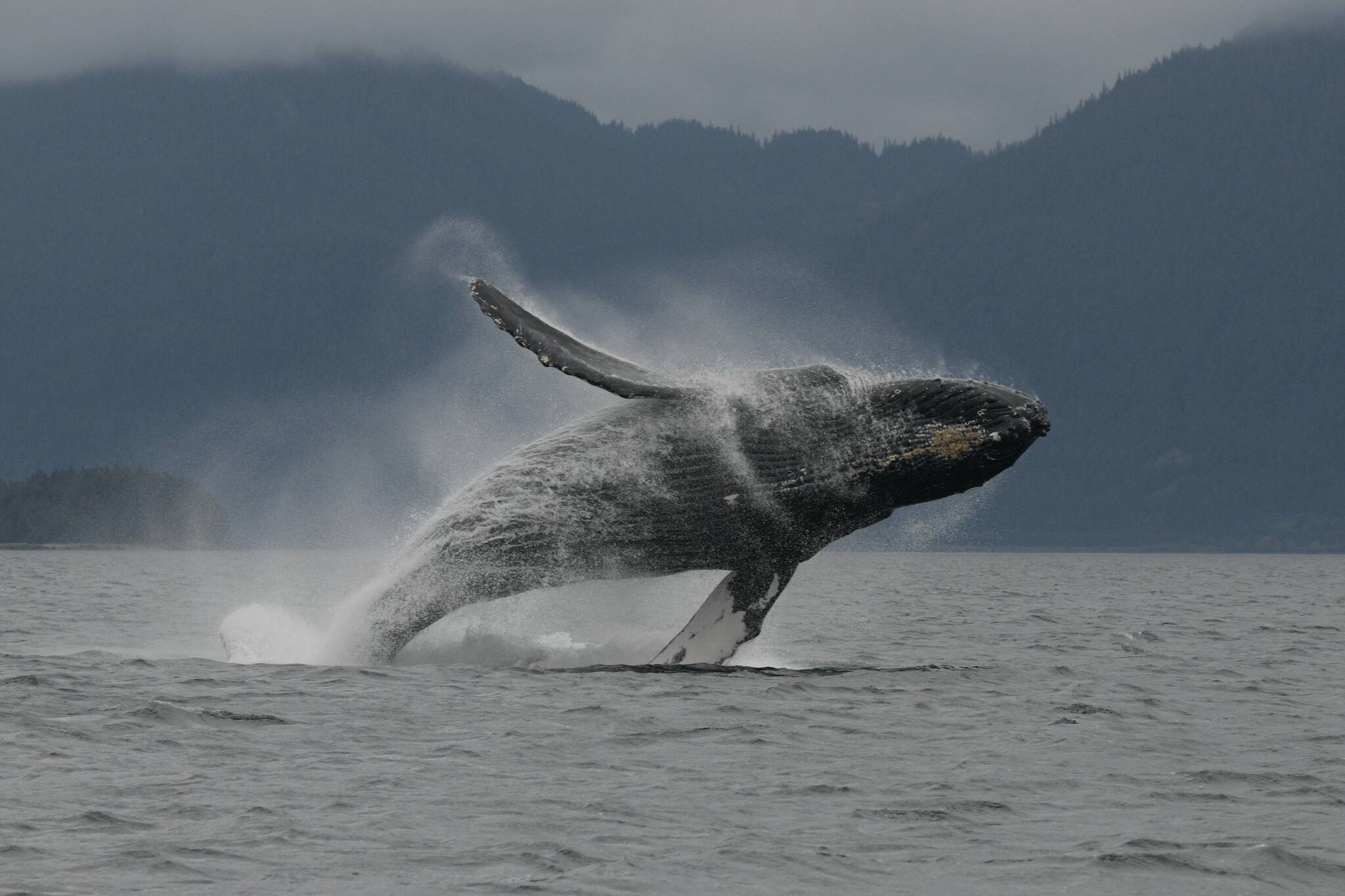The role whales play in reducing carbon in the atmosphere should be considered in climate mitigation efforts, a new scientific paper authored by a coalition of researchers contends.
Published in Dec. 15 in Trends in Ecology and Evolution, a monthly review journal, the article explores how large marine animals can influence the amount of carbon in the air and water and potentially contribute to the overall reduction of atmospheric carbon dioxide, according to a press release from University of Alaska Southeast.
“Understanding the role of whales in the carbon cycle is a dynamic and emerging field that may benefit both marine conservation and climate-change strategies,” the authors, led by UAS biologist Heidi Pearson, are quoted as saying in the release. “This will require interdisciplinary collaboration between marine ecologists, oceanographers, biogeochemists, carbon-cycle modelers, and economists.”
The authors note the size and longevity of whales — they can weigh up to 150 tons and live more than 100 years — and their role in a marine system responsible for storing 22% of earth’s carbon.
“Their size and longevity allow whales to exert strong effects on the carbon cycle by storing carbon more effectively than small animals, ingesting extreme quantities of prey, and producing large volumes of waste products,” the researchers wrote.
Whales consume a large quantity of food daily — up to 4% of their body weight — and their excrement plays a critical role in nourishing species like krill and plankton, aiding in photosynthesis and carbon storage from the atmosphere, researchers wrote. Their bodies also act as carbon sinks — when whales die, their bodies fall to the seafloor and the carbon they contain is transferred to the deep sea. This process is part of a concept Pearson refers to as “Blue Carbon,” fertilization of surface waters from excrement to decomposition of deceased bodies, the researchers reported.
“Whale recovery has the potential for long-term self-sustained enhancement of the ocean carbon sink,” the authors wrote. “The full carbon dioxide reduction role of great whales (and other organisms) will only be realized through robust conservation and management interventions that directly promote population increases.”
Find full research information here: https://www.cell.com/trends/ecology-evolution/fulltext/S0169-5347(22)00279-8.
Emilie Springer can be reached at emilie.springer@homernews.com

